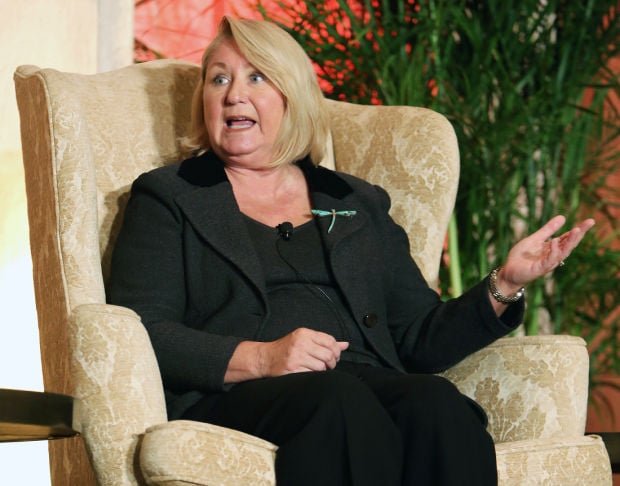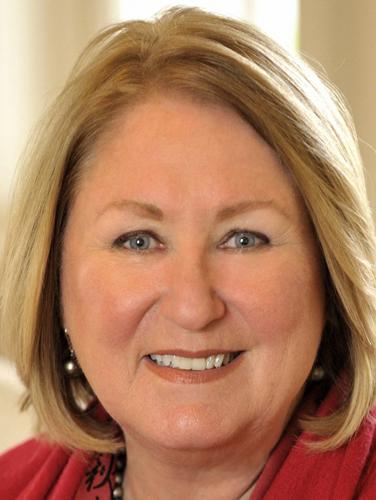What grabs your attention about UA President Ann Weaver Hart’s new side job is the money.
Hart already has a compensation package worth $665,500 this year for her job at Old Main. Her election to the board of DeVry Education Group Inc. last month gives her annually $70,000 more in pay plus $100,000 in restricted stock.
Yes, it seems excessive, but it’s not uncommon for university presidents to make some walking-around money on a board of directors. The bigger problem with Hart’s corporate adventure is that it looks like a bad fit for the president of a big public university, and it’s not just me who thinks so. Jim Finkelstein, a professor of public policy at George Mason University in Fairfax, Virginia, has researched university presidents’ service on boards and agrees about this case.
“Personally, I don’t think it passes the smell test that there can be any possible benefit to the president’s institution resulting from their service on that kind of corporate board,” Finkelstein told me Monday. “The primary beneficiary of serving on that kind of board is the president of the university.”
This board raises special questions because DeVry is, arguably, a competitor of the UA, and because it faces recent allegations of deceptive advertising and marketing, and because Hart’s presence lends the company the credibility of the University of Arizona’s name.
DeVry is a big, multifaceted part of an industry that for years thrived on a three-part trick. First, it put on a hard-sell to potential students — in DeVry’s case, it is accused by the Federal Trade Commission of making deceptively grand claims about the career success of its graduates.
Then, the for-profit companies filled their coffers with federal financial aid and student loans. At DeVry, that made up 59 percent of the company’s 2015 revenue. Finally, too many students ended up burdened with years of loan payments without nearly the job prospects the companies used to lure them in the first place.
Congress and Obama-administration regulators have been exposing and cracking down on this behavior for the last few years, but they apparently continue, if the FTC suit is to be believed.
Hart’s service, Finkelstein said, “raises real questions on two levels: One is the issue of competition. The second is the question of judgment. Given the concerns raised about the business practices of these institutions, is it wise for the university president to serve on the board if the purpose of serving on the board is to give a sense of legitimacy?”
Despite a UA spokesman’s claim that Hart’s job is “not related to her position at the UA,” clearly it is. In DeVry’s press release about the appointment of Hart and Linda Katehi, chancellor of the University of California-Davis to the board, it celebrated landing these “accomplished educators.”
A scrutinized company in a troubled industry of course gains credibility from having the University of Arizona’s president on its board. Something tells me Hart wouldn’t have been chosen if she were head of Central Arizona College.
Katehi, by the way, was forced to give up her appointment when critics questioned it, but asked by my colleague Carol Ann Alaimo if she is reconsidering, Hart said no.
What about the competition angle?
UA faculty president Lynn Nadel told me he thinks the problem with Hart’s election to the board is more about the company’s problems than competition concerns.
“It’s not a direct conflict,” he said.
It’s true that neither DeVry Education Group nor its subsidiary schools are like the University of Arizona as institutions. They’re a different model.
But DeVry’s subsidiaries offers many academic programs in Arizona, some of which overlap with the UA’s offerings. DeVry University has three locations in Phoenix; Carrington College also has three sites in the Phoenix area, plus a Tucson campus; Chamberlain College of Nursing has a Phoenix campus; and Keller Graduate School of Management also has three Phoenix-area sites.
DeVry also has a medical school and veterinary school on Caribbean islands. They may not compete over many of the same students, but certainly they compete for some. And if DeVry and its board do a good job, they’ll grow and compete for more potential UA students in the future.
That’s fine for DeVry, as long as it complies with federal law in the process. But I don’t see how Hart can faithfully perform her duties to two entities competing over the same customers.
So while it’s natural to raise our eyebrows at her going for the extra money or spending more time away from Tucson, those aren’t the main issues. The big questions are about whose best interest she ultimately represents and how she uses the university’s good name.








